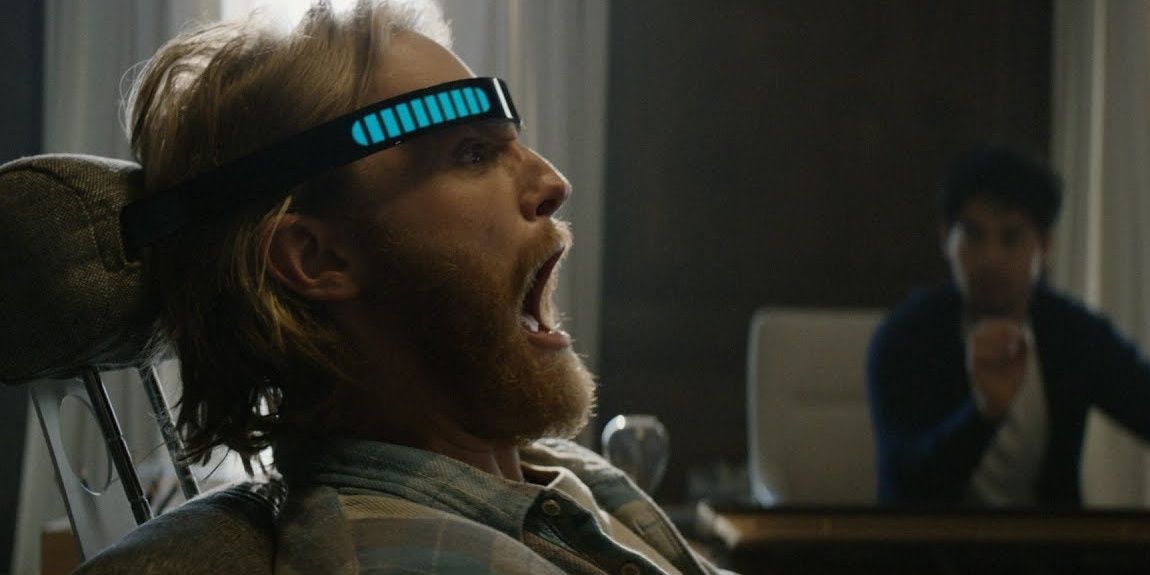
Exploring the Unsettling Realism of Black Mirror

As technology rapidly advances, the popular show Black Mirror prompts us to question its impact Is the show losing its sci-fi charm as real-life controversial advancements make its dystopian scenarios seem eerily plausible?
Black Mirror, when it first premiered, captivated the public with its intriguing concept. The anthology series explores the dangers of technology either exceeding its boundaries or falling into malevolent hands. Despite having a science fiction angle, each episode still managed to maintain a sense of realism. Initially, the show's appeal stemmed from the suspenseful horror of witnessing technology's potential negative impact on humanity. However, as the real world has evolved, the show has lost some of its light-heartedness.
Recent advancements in technology have taken on a more dystopian quality, resulting in Black Mirror feeling uncomfortably close to reality rather than a mere fantasy. The speculative fiction that once made the show a fascinating thought experiment now seems alarmingly plausible. This shift may deter some viewers, as the show no longer serves as a means of escapism but rather reflects the world they inhabit. On the other hand, this increased relevancy may resonate deeply with certain viewers, highlighting the show's growing significance in the present world.
How Has The World Changed Since Black Mirror Started?
In the past few decades, there has been a significant surge in technological advancements. Individuals born in the late 90s have experienced the transition from flip phones to smartphones, along with all the subsequent improvements. They have witnessed the era of VHS tapes and cassettes, while also growing up with CDs, DVDs, and even iPods. The ever-changing world, particularly in technology since the debut of Black Mirror in 2011, has taken a direction that many find unsettling.
Lately, there has been a growing emphasis on the Metaverse and the rapid advancements in AI technology. It feels reminiscent of a Black Mirror episode, yet it is actually happening in real life. The use of AI has sparked intense debates, being a subject of the ongoing writer's strike in Hollywood and a topic of discussion on the internet as people try to determine the ethical implications. The utilization of AI to simulate how a singer would sound while performing a song that is not theirs, or attempting to pass off AI-generated art as the work of an actual artist, have become real problems, even though they sound like plotlines from Black Mirror.
Does Black Mirror Feel More Realistic Now?
The show was always intended to capture a realistic essence, contributing to its dystopian aura. It conveyed the haunting possibility that technology could lead society down a darker path. Given the current global focus on technology, this speculation is becoming more like a keen observation of our current climate. In Season 6, for instance, the episode "Joan Is Awful" centers around a woman whose entire life becomes a televised spectacle because she unwittingly agreed to the streaming network's terms and conditions without reading them (as most people do). This episode also delves into the use of artificial intelligence to produce the show and recreate the personas of its characters, resembling a genuine discussion that any streaming platform might engage in. Despite being a meta commentary on Netflix itself, it mirrors the very real issues that technology has recently catalyzed in our world.
Is Black Mirror's Realism Actually A Good Thing?
The sense of realism in Black Mirror may be unsettling for those already concerned about the direction of certain tech companies. However, as the world evolves, the show may need to evolve as well. By approaching certain topics or episodes with a slightly more realistic lens, Black Mirror aims to connect with an audience experiencing rapid developments. While some viewers may seek escapism, many watch Black Mirror for its plausibility. Although the situations portrayed are extreme, the core premise of each episode is rooted in a future that feels within reach. This balance between fantasy and reality is a hallmark of science fiction.
Considering this, the way Black Mirror is increasingly reflecting real-life events is quite fitting for a show that prides itself on straddling the line between reality and imagination. In fact, this adds to its terrifying nature when it becomes somewhat relatable to the audience. Instead of being purely speculative and detached from reality, it prompts viewers to question what could occur if they were to encounter this technology in their own lives. Ultimately, it comes down to individual preferences, but it undeniably transforms the experience of watching Black Mirror.
















